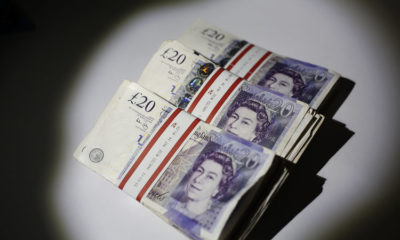US stocks are declining after a weekend filled with global central bank hawkishness reinforced the message that global central bank tightening will deliver pain to households and businesses. Friday’s sharp selloff is continuing as expectations for the global energy crisis to persist, which will keep inflation risks elevated and lead to a rapid deterioration of economic data.
Powell sent a short and direct message that there won’t be a Fed pivot anytime soon and that has markets positioned for further equity weakness. Investors were expecting that once the US got some ugly data, perhaps a couple negative NFP reports, that the Fed would come to the rescue, but that might not be the case. Premature loosening won’t be happening on the first signs that the economy is slowing down quickly and that raising doubts for anyone who bought stocks earlier this month.
All about Europe this week
The ECB rate decision will show that the current inflation narrative will force them to deliver massive rate hikes that will kill growth. Over the weekend, ECB’s Rehn said their next step is a significant rate move in September and that it should be by at least 50 basis points. The latest round of ECB talk has been hawkish and that should have markets leaning towards expecting a 75 basis point rate hike.
The European Union Commissioner Ursula von der Leyen is preparing an emergency intervention and structural reform of the electricity market. Drastic measures are needed to salvage the European economy as the risks of extremely higher energy costs could trigger a severe recession. Czech officials have suggested capping natural gas used for power generation. The EU is expected to meet on September 9th and is expected to show some plan on tackling the energy crisis.
Gold
Non-interest bearing gold got crushed early as more global central bank rate hikes are getting priced in. Gold is edging higher as the dollar rally halted as the euro rises on expectations the ECB will deliver more rate hikes than investors initially thought. If the dollar does not rally here, that could provide some relief for gold. If equities remain in risk aversion mode as the speculative money that bought risky assets this month grows nervous economic growth is about to collapse, gold might be able to stabilize here.
Gold was vulnerable to a plunge towards $1700 but it is starting to show some resilience. With the UK on holiday, today’s moves might be meaningless. The true test for gold will come tomorrow.
Oil
The one trade that everyone can agree upon is that the oil market will likely remain tight. Oil rallied on rising risks of a potential civil war that could put Libyan output at risk and over growing expectations that OPEC+ is positioning themselves to cut production. What is also helping oil today is that despite risk aversion running wild, the dollar rally is on hold.
Oil has been trending lower but the supply side risks are too great and prices need to find a home above the $100 a barrel level.
Bitcoin
Over the weekend, Bitcoin dipped below the coveted $20,000 price point as risk aversions grew following more global central bank hawkish talk from Jackson Hole. Bitcoin is showing some resilience here as it has clawed back above the $20,000 level, despite widespread stock market weakness. Crypto traders are not used to seeing Bitcoin withstand a rout on Wall Street, so this could be a promising sign. Crypto bulls will be tested here as the risk for further risk aversion are high given the trajectory of the global economy.














